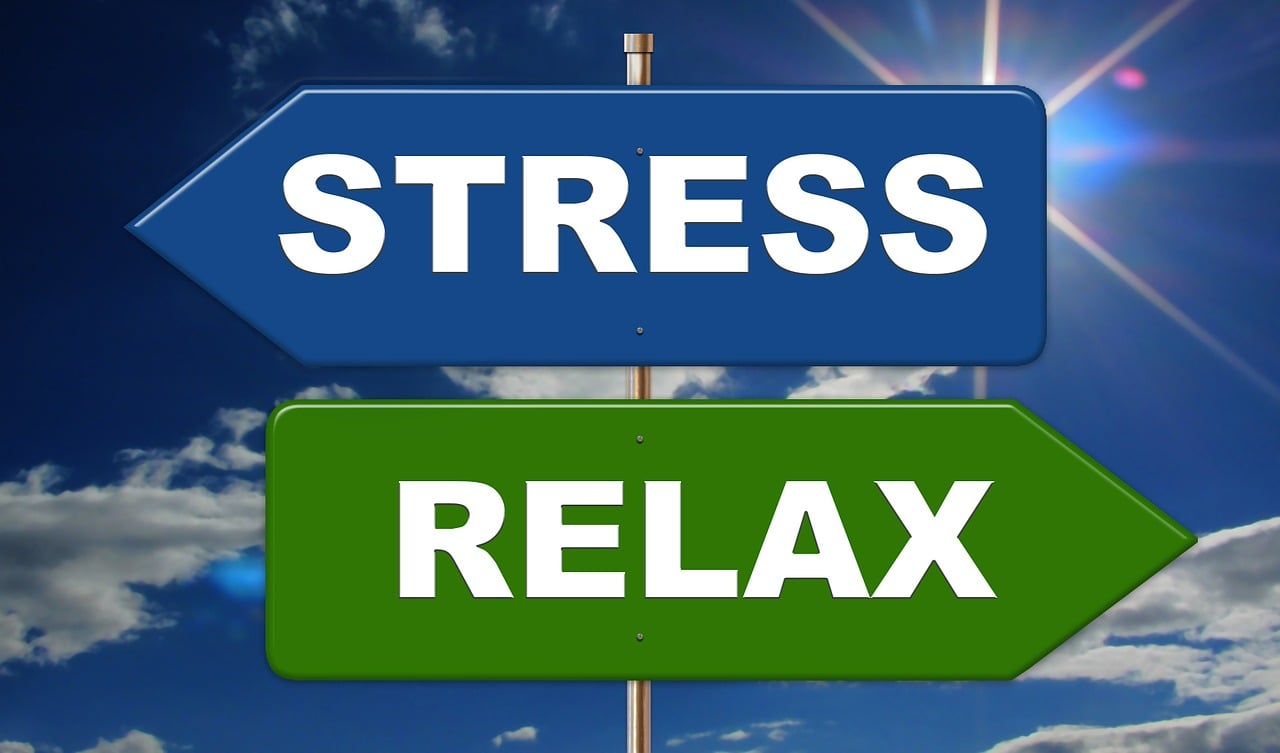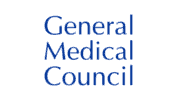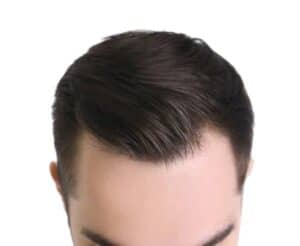How Long Does it Last?
Are you worried about hair loss from stress and thinking about how long it will take for your hair follicles to grow back? Are you questioning whether your hair follicles will ever grow again? On this page you will find out everything you need to know about stress related hair loss, its causes, symptoms, and treatments.
Overview
Stress is one of the leading causes of hair loss in men and women. Commonly attributed to a condition called telogen effluvium, stress related hair loss can cause physical and emotional stress in many of its sufferers. Hair loss from stress is usually temporary and it can be treated with medication.
What is Stress Related Hair Loss?

Stress related hair loss is one of the most common types of hair loss amongst men and women. In the UK and abroad, our lives seem to be getting more stressful day by day, sometimes causing us to suffer with hair loss.
Although it is completely normal for us to lose between 50 and 150 hair follicles every single day, we tend to categorise “hair loss” as a medical condition when we begin to lose more hair than we can regrow. The hair growth cycle we all experience is disrupted.
There are a number of different causes and explanations for stress related hair loss, namely a condition called telogen effluvium and a series of broader environmental causes. In both cases, this can cause the hair follicles on your head to fall out, leading to noticeable hair fall and thinning.
Why Do We Get Stressed?
This may seem like an obvious and unnecessary question. However, it’s important to understand how and why we may become stressed in order to acknowledge, combat, and prevent hair loss from occurring during the more stressful periods in our life.
Simply put, “stress” is our body’s response to pressure. There are many different situations or life events that can cause stress. Often, stress is triggered when we experience something new or unexpected that threatens our sense of self or when we feel we have little control over a situation.
If stressful events or situations occur for an elongated period of time, then we may begin to suffer with hair loss. Hair loss due to stress is one of your body’s ways of coping with stress.
What Are the Symptoms of Hair Loss From Stress?

There are many common symptoms of hair loss from stress (telogen effluvium). These symptoms include, but are not limited to:
- Increased amount of hair on the hairbrush, pillow, or shower drain.
- General thinning on the top of the head
- Diffuse thinning of the donor area in patients who are stage 7 on the Norwood Scale.
- Dry and brittle hairs that fall from the scalp easily.
If you have telogen effluvium, your scalp should look healthy. However, for patients who are dealing with a stressful lifestyle, conditions like stress eczema are common. Whilst this commonly affects the skin, it can also affect the scalp. So, although not strictly “telogen effluvium”, rashes, itches, flaking or general irritation on the scalp may also be a factor in stress related hair loss.
How Does Stress Related Hair Loss Occur?
Stress and hair loss can occur for a number of reasons. One of the most common explanations for this is through a condition called telogen effluvium. However, if you live a particularly stressful lifestyle, or have experienced a traumatic event, then there can also be a number of environmental causes for hair loss that you may need to consider as well.
Telogen Effluvium
Telogen effluvium is a type of temporary hair loss condition that often occurs as a response to stress. It is a condition that affects the hair growth cycle of your hair follicles. Your hair has three stages of growth and loss (shedding):
- Anagen (Growth Phase) – This is where your hair growth cycle is most active. The cells underneath your dermic layer (skin) divide rapidly causing the birth of a hair follicle. Once new hair has formed, it pushes the hair out of your follicle and elongates your hair shafts. A hair follicle can grow hair in the anagen stage for up to four years. Around 80% to 90% of your hair follicles are in the anagen stage at any given time. This is why your hair grows!
- Catagen (Resting Phase) – You can think of this as a transitional stage of your hair growth cycle. The lower portion of your hair follicle regresses and the hair stops growing. It is estimated that about 5% of all hairs are in the catagen stage at any one time. If you take something like Minoxidil for hair loss, this can help to prevent the next stage from occuring
- Telogen (Shedding Phase): This is the part of the hair cycle where your hair falls out. As the hair follicle is inactive inactive, it can begin to fall out. For patients not suffering with telogen effluvium, about 5% of all hairs are in the telogen stage at any given time.
Telogen effluvium affects your hair when it’s in the telogen stage. After a stressor or change to your body, up to 70% of your hair in the anagen stage prematurely enters the telogen phase, which causes hair loss.
Or, put in simpler terms, if more hairs are in the shedding phase than the growth phase, it’s easy to see why people begin to see visible signs of hair loss.
Hormone Levels
One of the most common results of the body’s response to stress is a change in hormone levels. Affecting both men and women, a rise in some hormones can also lead to hair loss. As the thyroid is often very responsive to stress, a stressful situation can, in some causes, cause hair loss.
Similarly, the body also releases testosterone as a response to stress. This can increase the level of Dihydrotestosterone (DHT) in the bloodstream and thus lead to an increase in hair loss symptoms.
Dietary Deficiencies
When we lead busy and stressful lives, we can often forget to keep our body’s happy and healthy. With so many things to think about, we can sometimes become a little bit complacent about the vitamins and nutrients we’re putting in our body, some of which are responsible for our hair health.
If you want to know about the relationship between stress, deficiencies, and hair loss, why not check out our “which vitamin deficiency causes hair loss?” page? This way, if you lead a stressful lifestyle, you can keep on top of your dietary supplementation and lower your chances of stress related hair loss.
What Hair Loss Conditions Are Not Stress Induced?
Common hair loss conditions such as male pattern baldness and female pattern baldness are not caused by stress. This is because pattern hair loss is known to be a genetic condition and not environmentally triggered.
Of course, it is always possible that a stressful lifestyle can worsen your symptoms of pattern hair loss. So, if you’re suffering from androgenic alopecia and telogen effluvium, you may see a quickened rate of patterned hair loss.
Another common hair loss condition that affects people is called alopecia areata. Alopecia areata is believed to be an autoimmune condition in which sufferers experience patchy hair loss, similar to telogen effluvium, in the size of a 10p piece.
Although similar to telogen effluvium, the symptoms of alopecia areata are slightly different. Balding in alopecia areata sufferers is often small and concentrated, leading to full baldness in one particular area. Stress related hair loss will usually cause a more gradual thinning over a larger area of the scalp.
How Can I Treat Stress Related Hair Loss?
Treating stress related hair loss is essential if you’re looking to fix the problem sooner rather than laster. Although hair loss from stress is a temporary condition and will eventually resolve itself, there is no harm in trying a range of supplements, medications, and treatments to slow hair loss symptoms and stimulate new hair growth.
Topical Treatments
Topical treatments, such as minoxidil for hair loss, are a fantastic treatment option for any type of hair loss, including hair loss from stress. Topical hair treatments are cheap, non-invasive, and effective at treating stress hair loss.
By applying a topical treatment, like minoxidil, you will increase the blood supply around the hair follicle roots, reducing hair fall and stimulating hair growth. Whilst minoxidil might not be quite as effective at helping hair loss from pattern hair loss grow back, it can sometimes work wonders for patients suffering with hair loss due to telogen effluvium.
Dietary Supplements
Dietary supplementation can be one of the smartest ways to make sure you’re not suffering from vitamin deficiency related hair loss. As well as potentially improving your overall health, taking a well balanced vitamin supplement can help to make sure you’re not suffering with any vitamin related hair loss symptoms.
PRP Therapy
If you’re looking for one of the most effective solutions for stress hair loss, then look no further than a PRP treatment. PRP, or “Platelet Rich Plasma Therapy”, looks to use your body’s own platelets and white blood cells to combat hair loss symptoms.
PRP treatments not only help to increase blood flow around the scalp, they also help to provide your hair follicles with essential nutrients held in your plasma cells. If you’re suffering with stress related hair loss, then a course of three PRP treatments can help begin your hair regrowth journey.
FAQs
No. As stress hair loss is only a temporary form of hair loss, a hair transplant is never usually an option. FUT and FUE hair transplants are only ever used in cases where patients are suffering from permanent hair loss conditions or used to lower hairlines that are naturally high.
As your hair will naturally grow back from stress related hair loss, this negates the need for such a drastic medical treatment. If you’re suffering with hair loss due to stress, then the best thing to do is to give it time.
In some cases, yes. Finasteride may be a good option for those suffering with stress related hair loss. Finasteride use is generally recommended for men but not for women. If you’re a women, you should definitely speak to your GP about finasteride use before you take it. Finasteride, as it is a hormone changing medication, can affect fertility.
Finasteride, for men, can be an effective treatment for stress related hair loss. Especially if you are suffering with another type of hair loss, like androgenic alopecia.
It’s difficult to say how long it takes for your hair to grow back if you’re suffering with stress related hair loss. In most cases, it is important to ensure you’re eating a balanced diet and using a topical treatmet, or medication to promote hair growth.
Usually, once you start taking a treatment for stress related hair loss, you may begin to see an improvement between three to six months. However, this is very much person dependent. As long as you’re trying your best to maintain healthy hair, then you’re on the right track!
The truth is, it’s difficult to tell. Broadly speaking, men tend to suffer more prominently with conditions such as male pattern baldness and women to tend to suffer more with temporary conditions, like stress induced hair loss. However, as any stress is enough to trigger telogen effluvium, hair loss caused by stress is very common in both sexes.








